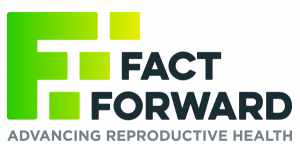The vast majority of sexuality education curricula and programs are created with the needs of girls in mind. Even if we don't believe it ourselves, the saying “boys will be boys” pervades sexuality education programming. Girls are set up as the sexual gatekeepers and decision-makers. Boys are either set up to be feared or widely ignored. This training will provide the most up-to-date information available about how boys learn, how co-ed sexuality education programming has failed boys, and what educators can do to be sure to reach all students and workshop participants. This workshop can be tailored to meet the specific needs of your group, school or agency. All content is aligned with the National Sexuality Education Standards, the National Teacher Preparation Standards for Sexuality Education, and the Professional Learning Standards for Sex Education.
Training Hub
The Sex Education Collaborative Training Hub lists trainings for sex educators, facilitators, and other professionals on best practices for sharing important information with clients and the public. From teaching anatomy inclusively to effectively addressing bias in the classroom to addressing racial justice and equity in sex education, the Training Hub includes trainings, technical assistance, and policy support from state, regional, and national leaders in the field of sex education.
Please note: The Training Hub includes both in-person and online professional trainings. If you see a training you are interested in and it isn’t listed as virtual, please reach out directly to any of our members to find out what's possible!
Trainings Offered by State-Based and National Organizations
Displaying results 136 - 137 of 137What About the Boys?: Teaching About Sexuality Accurately and Effectively with Teen Boys
- Indicator 1 (K-12): Demonstrate three techniques to create an inclusive and affirming learning environment. (S)
- Indicator 7 (K-12): Demonstrate the ability to analyze and tailor lesson plans to match the age, developmental stages, cultural backgrounds, and other identities of students. (S)
Askable Adult: Talking to Teens About Tough Topics
In this training, participants will improve their skills in talking with adolescents about delicate topics and answering sensitive questions. By becoming an Askable Adult, participants will gain essential tools to support teens in making healthy decisions about relationships, love, and sex.
- Indicator 1 (K-12): Demonstrate three techniques to create an inclusive and affirming learning environment. (S)
- Indicator 1 (K-12): Describe three distinguishing characteristics between healthy and unhealthy relationships, involving family, friends, and/or romantic partners.
- Indicator 2 (K-12): Explain three ways that healthy relationships can positively impact personal well-being.
- Indicator 2 (K-12): Demonstrate the ability to effectively respond to three different types of challenging questions. (S)
- Indicator 1 (K-12): Explain the differences between personal and universal values relating to sexuality.
- Indicator 2 (K-12): Describe how verbal and nonverbal expression of personal values, and comfort with topics related to sex education, could impact one’s teaching
Additional Trainings offered by out-of-state organizations
- ‹ previous
- 9 of 49
- next ›
Accessible Sex Ed Training for Facilitators
This workshop is designed for sex ed and family life educators who want to make their programs more accessible to people with a variety of disabilities, particularly autistic people and people with intellectual and developmental disabilities (IDD).
Adding these skills to your toolbox makes affirming, inclusive education more accessible for all participants..
“Accessible Sex Ed” also covers how to talk with caregivers about the importance of complete, fact-based education for all people, especially neurodiverse folx.
- Indicator 1 (K-12): Explain three reasons why it is important to respond to every question students ask when teaching sex education.
- Indicator 2 (K-12): Demonstrate the ability to effectively respond to three different types of challenging questions. (S)


